Filter by
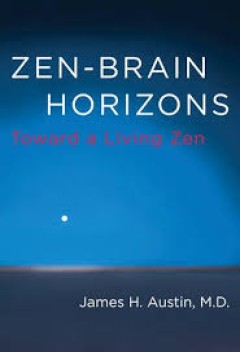
Zen-Brain Horizons: Toward a Living Zen
A neurologist and Zen practitioner clarifies the benefits of meditative training, drawing on classical Buddhist literature and modern brain research."In Zen-Brain Horizons, James Austin draws on his decades of experience as a neurologist and Zen practitioner to clarify the benefits of meditative training. Austin integrates classical Buddhist literature with modern brain research, exploring the …
- Edition
- -
- ISBN/ISSN
- 9780262321150
- Collation
- 1 online resource (xxi, 273 pages) :color illustrations
- Series Title
- -
- Call Number
- -

How the body shapes the way we think : a new view of intelligence
"A Bradford book."An exploration of embodied intelligence and its implications points toward a theory of intelligence in general; with case studies of intelligent systems in ubiquitous computing, business and management, human memory, and robotics.OCLC-licensed vendor bibliographic record.
- Edition
- -
- ISBN/ISSN
- 9780262281553
- Collation
- 1 online resource (xxiv, 394 pages) : illustrations
- Series Title
- -
- Call Number
- 001 PFE h
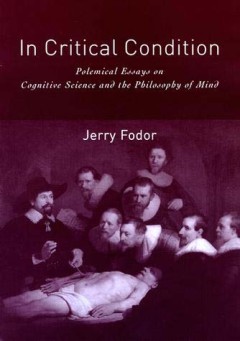
In critical condition : polemical essays on cognitive science and the philoso…
"A Bradford book."Doing philosophy, according to Jerry Fodor, is like piloting: The trick is to find an object of known position and locate yourself with respect to it. In this book, Fodor contrasts his views about the mind with those of a number of well-known philosophers and cognitive scientists, including John McDowell, Christopher Peacocke, Paul Churchland, Daniel Dennett, Paul Smolensky, a…
- Edition
- -
- ISBN/ISSN
- 0585078092
- Collation
- 1 online resource (x, 219 pages).
- Series Title
- Representation And Mind Series
- Call Number
- 100 FOD c

The new science of the mind :from extended mind to embodied phenomenology
An investigation into the conceptual foundations of a new way of thinking about the mind that does not locate all cognition "in the head." There is a new way of thinking about the mind that does not locate mental processes exclusively "in the head." Some think that this expanded conception of the mind will be the basis of a new science of the mind. In this book, leading philosopher Mark Rowl…
- Edition
- -
- ISBN/ISSN
- 9780262289733
- Collation
- 1 online resource (x, 249 pages)
- Series Title
- -
- Call Number
- -
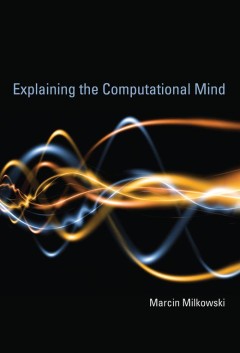
Explaining the computational mind
In this work, Marcin Milkowski argues that the mind can be explained computationally because it is itself computational - whether it engages in mental arithmetic, parses natural language, or processes the auditory signals that allow us to experience music.OCLC-licensed vendor bibliographic record.
- Edition
- -
- ISBN/ISSN
- 9780262313919
- Collation
- 1 online resource (x, 243 pages)
- Series Title
- -
- Call Number
- -
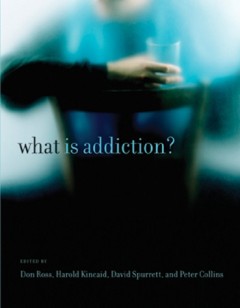
What is addiction?
"The image of the addict in popular culture combines victimhood and moral failure; we sympathize with addicts in films and novels because of their suffering and their hard-won knowledge. And yet actual scientific knowledge about addiction tends to undermine this cultural construct. In What Is Addiction? leading addiction researchers from neuroscience, psychology, genetics, philosophy, economics…
- Edition
- -
- ISBN/ISSN
- 9780262288248
- Collation
- 1 online resource (xi, 448 pages) :illustrations
- Series Title
- -
- Call Number
- -
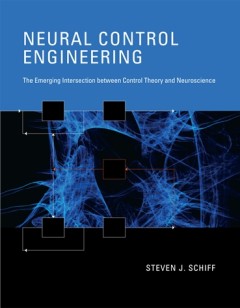
Neural control engineering: The emerging intersection between control theory …
How powerful new methods in nonlinear control engineering can be applied to neuroscience, from fundamental model formulation to advanced medical applications.Over the past sixty years, powerful methods of model-based control engineering have been responsible for such dramatic advances in engineering systems as autolanding aircraft, autonomous vehicles, and even weather forecasting. Over those s…
- Edition
- -
- ISBN/ISSN
- 9780262312080
- Collation
- 1 online resource (xvi, 361 pages) :illustrations (some color).
- Series Title
- -
- Call Number
- -
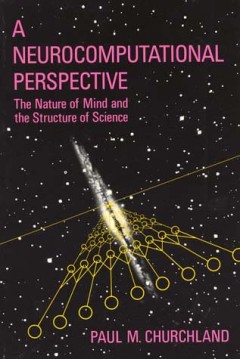
A neurocomputational perspective :the nature of mind and the structure of sci…
If we are to solve the central problems in the philosophy of science, Paul Churchland argues, we must draw heavily on the resources of the emerging sciences of the mind-brain. A Neurocomputationial Perspective illustrates the fertility of the concepts and data drawn from the study of the brain and of artificial networks that model the brain. These concepts bring unexpected coherence to scattere…
- Edition
- -
- ISBN/ISSN
- 9780262270328
- Collation
- 1 online resource (xvii, 321 pages) :illustrations
- Series Title
- -
- Call Number
- -
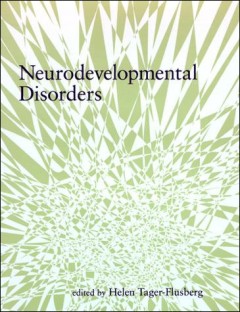
Neurodevelopmental disorders
"Until recently, genetic, neuroanatomical, and psychological investigations on neurodevelopmental disorders were carried out independently. Now, tremendous advances across all disciplines have brought us toward a new scientific frontier: the integration of molecular genetics with a developmental cognitive neuroscience. The goal is to understand the basic mechanisms by which genes and environmen…
- Edition
- -
- ISBN/ISSN
- 9780262284653
- Collation
- 1 online resource (xii, 614 pages) :illustrations.
- Series Title
- -
- Call Number
- -
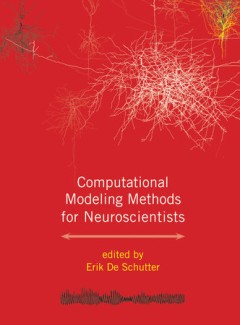
Computational modeling methods for neuroscientists
This is a guide to computational modelling methods in neuroscience covering a range of modelling scales from molecular reactions to large neural networks.
- Edition
- -
- ISBN/ISSN
- -
- Collation
- 1 online resource (xii, 419 pages) : illustrations.
- Series Title
- -
- Call Number
- -
 Computer Science, Information & General Works
Computer Science, Information & General Works  Philosophy & Psychology
Philosophy & Psychology  Religion
Religion  Social Sciences
Social Sciences  Language
Language  Pure Science
Pure Science  Applied Sciences
Applied Sciences  Art & Recreation
Art & Recreation  Literature
Literature  History & Geography
History & Geography